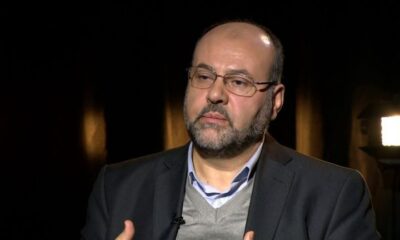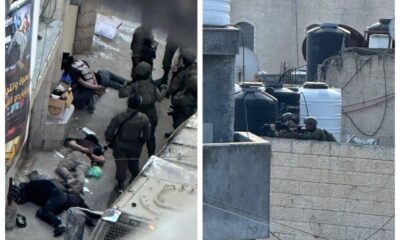OCCUPIED JERUSALEM, (The Palestine Foundation Pakistan)
The Israeli occupation authorities are planning to establish a waste incineration plant in the town of Qalandiya, north of Occupied Jerusalem.
The Israeli project threatens to demolish two buildings that house dozens of Palestinian families, in addition to confiscating about 150 dunums of agricultural land for the purpose of demolishing and rebuilding parts of the separation wall.
The Israeli government approved the construction of the plant last May. It is expected to receive energy-rich waste such as plastic, paper, and plant residues, which will be burned to generate energy that will be fed into the electricity grid.
This facility is one of five waste incineration plants Israel plans to build in the coming years in various areas. Its construction is expected to be funded by the Cleanliness Fund affiliated with the Ministry of Environmental Protection.
According to the Israeli government’s decision, the fund will also finance the dismantling of the separation wall and the alteration of its route to bring it closer to the municipal boundaries of Jerusalem.
The legal opinion supporting the wall’s relocation was prepared by attorney Etty Ofir, who was appointed last week as the new Chief Military Prosecutor, replacing Yifat Tomer-Yerushalmi, who resigned following a scandal involving leaked footage of soldiers committing brutal abuses against a Palestinian detainee at Sde Teiman camp.
The separation wall divides the town of Qalandiya in two, leaving some of its houses on the Jerusalem side. When the wall was completed in 2011, residents of the village filed a petition against its route.
In response to the petition, the occupation authorities pledged to install a gate in the wall to allow residents, including those holding Israeli ID cards, access to Jerusalem.
At the time, the Israeli Supreme Court ruled that the wall’s route must include a gate for the village residents’ use.
Currently, the gate is opened only twice a year for agricultural purposes. The third time was two weeks ago, when representatives of the so-called Israel Land Authority visited the village, formally notifying residents of the waste plant project and posting eviction orders on the two buildings slated for demolition.
Occupation authorities also put up yellow warning signs in Hebrew and Arabic reading: “Entry to the area is prohibited. Anyone entering does so at their own risk and bears full responsibility for the consequences.”
The main stated goal of the project is to reduce the amount of waste sent to landfills. Israel claims the plant is modeled on systems used in developed countries and argues that, if implemented under strict environmental standards, it would cause less air pollution than current alternatives.
However, the nearby Atarot Industrial Zone, adjacent to Qalandiya, is one of the most polluted areas in Israel. Hundreds of thousands of Palestinians live around it, in Kafr Aqab and Beit Hanina (in Jerusalem) and the Palestinian towns of Al-Jib and Beir Nabala.
Residents of Qalandiya stress that air pollution is less dangerous than losing their homes and lands to the project.
Over the years, the area has witnessed repeated land confiscations for so-called “public purposes.” Recently, far-right Finance Minister Bezalel Smotrich finalized the land seizure procedures required to implement the new project.











